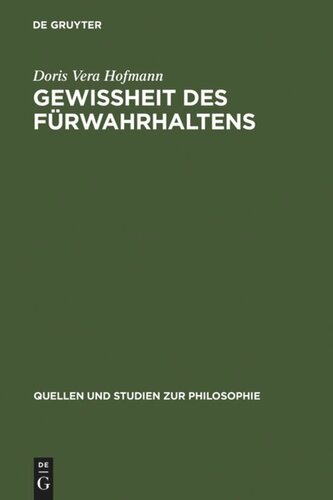
Gewißheit des Fürwahrhaltens: Zur Bedeutung der Wahrheit im Fluß des Lebens nach Kant und Wittgenstein PDF
288 Pages·2000·95.789 MB·German
Most books are stored in the elastic cloud where traffic is expensive. For this reason, we have a limit on daily download.
Preview Gewißheit des Fürwahrhaltens: Zur Bedeutung der Wahrheit im Fluß des Lebens nach Kant und Wittgenstein
Description:
This book presents the question of truth not via the contrast between true and false but in connection with different modes of certainty, i.e. truth in its complex relationships with practical questions and the need for judgements. These questions are systematically analyzed and discussed historically.Using evidence of the decisive function of judgement, the author clarifies the connections and fractures between theoretical and practical philosophy. Judgement as an individual ability serves to evaluate the reactions of others to one's own perception of truth without there being a final general rule. Here, theoretical philosophy moves into political philosophy (Kant) or in the philosophy of psycholgy (Wittgenstein).
See more
The list of books you might like
Most books are stored in the elastic cloud where traffic is expensive. For this reason, we have a limit on daily download.
